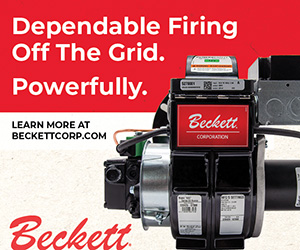
Insurance Scams and Protecting Your Business
By Diane M. Calabrese / Published June 2016

It’s a trick. Those are definitely words we do not want to hear outside a magic show.
Yet, sadly, in every part of life we may encounter individuals who aim to deceive us. Even the insurance purchased to protect a business and its employees can become an enticement to those who would commit fraud.
For manufacturers, distributors, and contractors who aim for honesty in each and every interaction, it’s difficult to believe that scammers could exact much of a toll. They do, though. From false reports about defective equipment to feigned injury, it’s all fraud.
The Coalition Against Insurance Fraud estimates that $80 billion is being stolen through fraud each year, and it adds this qualifier: that is a conservative estimate. The group summarizes (www.insurancefraud.org/statistics.htm#.Vwz1jL1E23M) costs to insurers, as well as types of insurance fraud, commitments to anti-fraud technology, and much more at the informative open-access link.
Ultimately, the cost of insurance fraud to insurers must be passed along to customers. It’s essential to be aware that fraud exists and take precautions to make it more difficult for would-be criminals.
“We have had a couple of drivers in accidents where the other person has made false claims,” says Brenda Purswell, president of Alklean Industries in Pasadena, TX. In these cases fraud was attempted.
What’s the solution to working through such a situation? It’s the same as it is in any other scenario involving an insurance claim.
“I think it’s important to have an agent you trust and can depend on and who can keep you abreast of things,” says Purswell. Find such an agent by a methodical search.
“Ask others, ‘Who do you use?’” says Purswell, who has a 10-year relationship with her agent. A good agent is there not only when there’s a claim, but also at other time-critical junctures. “It’s important to have sufficient staff at that agency so that you can get proof of insurance in an hour,” says Purswell. Making a competitive bid for a job in a short time frame depends on a responsive agent.
As for types of insurance, there are must-haves, such as general liability and umbrella, says Purswell. “In Texas, we have to have liability.” Purswell reminds others that insurance requirements vary by state. That is all the more reason to have an agent in whom one has complete confidence, an agent who can outline requirements. “Every state’s going to be different.”
Be prepared, too, for changes to occur. For instance, when dealing with industrial sites, a supplier or contractor typically might have been required by the site owner to have $1 million liability insurance with a $1 million umbrella. “Some now want a lot more,” explains Purswell.
Be Involved
The best way to get necessary insurance without complications is to be involved. “You must develop a trusting relationship with the insurance company you ultimately decide to use,” says Doug Rucker, president of the UAMCC and owner of Clean and Green Solutions in Porter, TX.
“During the ‘quote’ process, ask questions, ask for return calls at specific times, and gauge how quickly e-mails are responded to,” says Rucker. “Things like this will help you decide which company is going to make the process smooth and complication free, now and in the future.”
For business owners, Rucker says in addition to federally mandated (and state run) workers’ compensation, there are several must-have sorts of coverage. They are general liability; commercial auto; inland marine coverage; and care, custody, and control—including broad form property damage.
 Looking at insurance from the side of the insurer, Tom Svrcek, president of the Joseph D. Walters Insurance Agency in Belle Vernon, PA, agrees with Purswell and Rucker. Forge a good relationship with an agent. “Everyone’s needs are different,” says Svrcek. That makes it best to be “dealing with a specialist, someone who’s familiar with their industry.”
Looking at insurance from the side of the insurer, Tom Svrcek, president of the Joseph D. Walters Insurance Agency in Belle Vernon, PA, agrees with Purswell and Rucker. Forge a good relationship with an agent. “Everyone’s needs are different,” says Svrcek. That makes it best to be “dealing with a specialist, someone who’s familiar with their industry.”
A specialist can assist a client with securing all necessary coverage. For example, the care, custody, and control coverage protects a contractor from inadvertent damage to the property being cleaned. Writing in the brochure “Guide for Power Wash & Window Wash Insurance,” Svrcek gives the example of costly damage to a floor by a breakaway part of a pressure washer. Since general liability insurance generally does not cover the work a business does, with a care, custody, and control endorsement, the event is covered.
Svrcek’s agency has deep experience in providing insurance to power washers and window cleaners. Its quotes start with care, custody, and control and include broad form property damage, blanket additional insured endorsement, general liability, and broad form inland marine coverage (for tools and equipment—owned or rented), as well as gatekeepers’ liability (for contractors who wash vehicles).
Most large property owners request a blanket waiver of subrogation from contractors. Svrcek’s agency can provide this, too.
Being appropriately insured reduces risk to the bottom line. Paying for a customer’s new floor could be a huge cost center if the floor is an expensive one.
Be Proactive
On the issue of avoiding scams, everyone who buys or sells insurance has a vested interest in minimizing the opportunities—a strange characterization, but the way fraudsters see it—for those who would do wrong. Insurers are good at spotting fraudulent claims, but proving the claims fictional can be very difficult.
Being proactive is often the best way to reduce fraud. That is, try to avoid hiring anyone who might be inclined to deception. When possible, do a background check on prospective employees before hiring. Before doing a background check, however, know what the law allows.
The U.S. Equal Employment Opportunity Commission guide to background checks (www.eeoc.gov/eeoc/publications/background_checks_employers.cfm) is thorough and informative. It’s also a reality check. In short, what’s revealed in a background check—including prior arrests and convictions—in many cases may not be used to reject an applicant from a position. Moreover, a prospective employee has rights and responsibilities under federal law that may allow the prospect to see a rejection following a background check as an adverse action.
Employers can probably do better at preventing fraud by instilling em-ployees with a high regard for the truth and honesty. Setting expectations high for everyone and modeling the behavior expected makes a strong team.
Workers’ compensation is one of the areas where many fraudulent claims occur. Surveillance cameras to monitor employees are becoming more common, not just because of fraudulent workers’ compensation claims, but also because of property theft. Such cameras are something to consider, but again, be sure to understand limits and privacy restrictions imposed by government regulators at all levels.
Be sure, also, that an employee can never use an “I-didn’t-know” reason to explain why proper procedures were not followed after an on-the-job accident. Policies and procedures reviewed regularly in routine safety meanings should emphasize what to do if an injury occurs on the job—from what immediate medical attention to take to which person(s) to inform at the company. (A red flag to insurers is a claim made by an employee who reported well after the fact with an injury and named a job incident as the cause.)
On the flip side, an employer has the responsibility to be accurate in all reporting. That means when classifying the work that employees do, an employer must assign the appropriate risk level to each job. If employees are working on ladders even 10 percent of the time, they are working on ladders.
Be Educated
The library at the U.S. Small Business Administration (SBA), www.sba.gov, offers many primers and free online courses regarding the basics of business insurance.
In terms of the employer insurance programs which the federal government requires, there are only two: workers’ compensation and unemployment insurance (tax). In addition, in the states of California, Hawaii, New Jersey, New York, Rhode Island, and the territory of Puerto Rico, employers must pay for wage replacement insurance (disability insurance) for their employees.
What’s needed as a matter of a law and what’s needed to protect the business from loss are items to discuss with a qualified agent or broker. The professional agent, who in many states must be licensed, can be a true partner in weighing complexities in each insurance category. Consider liability insurance. General liability, product liability, and professional liability just begin the list.
The most successful discussion with an agent occurs when a manufacturer, distributor, or contractor has already made a candid self-assessment of risks and risk tolerance. Every factor, from where a business is located to building construction, will factor into the premium.
Combining purchases from a single insurer can be a way to save upfront and to reduce some deductibles. It can also be a way to create a strong, lasting relationship with an agent who can provide guidance as well as policies. Some insurers will offer educational programs to clients, programs designed to help lower risk. Things change, so reevaluate coverage at least annually.
According to the SBA, the Association of Certified Fraud Examiners reports smaller companies (fewer than 100 employees) are more susceptible to fraud of all kinds, from insurance to credit card use, than large companies. However, everyone is vulnerable and must be vigilant.




